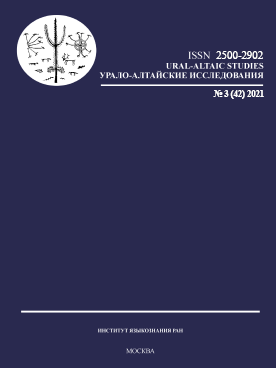ЦИТАЦИОННЫЕ КОНСТРУКЦИИ В ЖИВОЙ ЯПОНСКОЙ РЕЧИ: ГРАММАТИКА И ПРАГМАТИКА
QUOTATIVES IN INFORMAL JAPANESE DISCOURSE: GRAMMAR AND PRAGMATICS
Author(s): Vera I. PodlesskayaSubject(s): Theoretical Linguistics, Phonetics / Phonology, Pragmatics, Comparative Linguistics
Published by: Институт языкознания Российской академии наук
Keywords: quotative; reported speech; direct speech; indirect speech; Japanese;
Summary/Abstract: Based on the data from Japanese personal blogs the paper addresses grammar and pragmatics of the Japanese constructions with the quotative marker to. The aim is twofold: (a) to describe the actual use of quotatives in informal electronic discourse; and (b) to put the Japanese data in the context of the current discussion about the nature of the direct/indirect speech opposition. Japanese is shown to be an intriguing case when it comes to distinguishing direct and indirect reports. First, it lacks standard indexicals typical for languages known as “standard average European”, e.g. there is no personal agreement, first and second personal pronouns are extremely rare, hence, one can rely only on optional indexicals, like benefactives, honorifics or the so called final pragmatic particles. Furthermore, even these optional indexicals may operate controversially within one and the same utterance — some being oriented towards the external narrator (which is typical for pragmatically indirect reports) and other being oriented towards the internal speaker (which is typical for pragmatically direct reports). Second, whatever type of indexicals is used, if at all, the report is marked by the quotative marker (complementizer) to. This also distinguishes Japanese from standard average European languages where complementizers normally introduce only pragmatically indirect reports which constitute an embedded clause. Third, the quotation marks (kagi) are optional for pragmatically direct reports, especially in informal electronic discourse. The kind of data we present supports the approach to reported speech that doesn’t favor either/or decisions, but rather is based on multifactorial analysis that considers the whole range of possible parameters and isolates their observed language-specific clusters.
Journal: Урало-алтайские исследования
- Issue Year: 2021
- Issue No: 03 (42)
- Page Range: 43-59
- Page Count: 17
- Language: Russian

